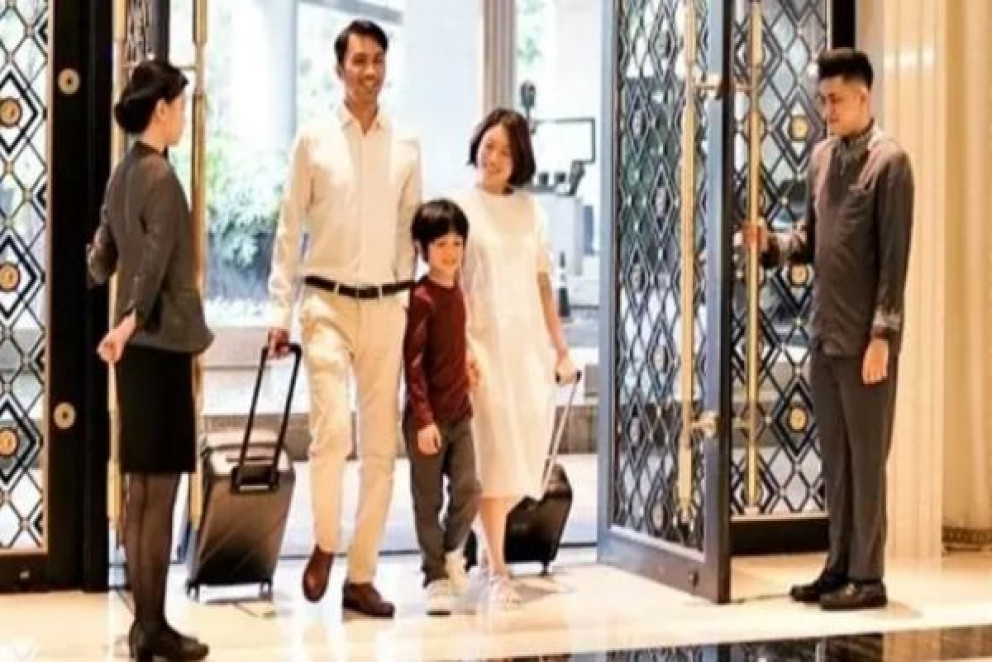Blog Details

Hotels adapt to neurodivergent needs: New era of stress-free family vacations
On a family trip to Walt Disney Co.’s. Orlando theme parks, Nicole Thibault’s 2.5-year-old son began experiencing meltdowns—and not in the standard toddler sense. Everything he had previously loved became deeply distressing, from his favourite characters to familiar foods setting off tantrums that could stretch for more than 30 minutes. Something felt amiss, Thibault recalls of the weeks before her son was diagnosed with autism. Determined to continue showing her son the world—sans meltdowns—her next step was to solicit travel tips from experienced parents of neurodivergent kids. One after another, the responses poured in, variants on the same idea: “We don’t go anywhere. It’s just too hard.”
A decade later, Thibault has built her New York-based travel agency, Magical Storybook Travels into a thriving business that caters specifically to neurodivergent families. In pre-travel counseling sessions for her clients, she studies their daily routines and preferences before discussing potential destinations. Then she’ll offer detailed briefs for each suggested hotel, including video tours, floor plans and potential sensory triggers (such as possible fireworks displays in the vicinity or strong scents in the lobby) to set expectations on a very granular level.
In the United States, approximately 20% of the population (66 million people) experience a form of neurodivergence. These often-invisible conditions range from attention deficit hyperactivity disorder (ADHD) and autism spectrum disorder to dyslexia and Tourette’s syndrome.
Each diagnosis—and each individual—is unique, and so are their destabilizing triggers. A child who thrives in playgrounds may prove intolerant of mulched wood chips on the ground. Another may love the stimulation of big cities—until the raspy sound of a subway announcement rattles them. Some may subsist primarily on chicken nuggets, but only if they’re not deemed “too scratchy.” Add a decreased ability to communicate verbally in unfamiliar or stressful environments, and it’s easy to see how travel can amount to a series of land mines.
The concerns are so overwhelming that, according to a 2022 survey, 78% of families or individuals with autism forgo travelling entirely. The findings are from the International Board of Credentialing and Continuing Education Standards, which trains education, health-care and corporate professionals on neurodivergent inclusivity. While that figure represents a drop from 87% in 2018, it’s still too large a number, the organization’s president Meredith Tekin said in an emailed statement.
But hotel brands are now wising up to the untapped economic opportunity of catering to this substantial segment and brushing up on how to extend a sensitive welcome. Up for grabs: tens of millions of prospective guests that currently stay home.
The first step, and the bulk of what these hotels are doing now, is training. Certifications such as those offered by Ibcces help employees to anticipate neurodivergent needs and handle guest interactions sensitively. Rather than stop to stare at Thibault’s toddler in a tantrum—or worse, offer gratuitous advice—trained staff are prepared to respond to parental requests for help while encouraging bystanders to move along quietly.
The board’s conversation with hotels, said Tekin, is shifting. “I have noticed a change from organizations asking ‘why’ this is a need to asking ‘how’ to better welcome these guests,” she wrote.
Close to 200 travel and tourism companies have received Ibcces’ Certified Autism Center or Advanced CAC designations since the program’s inception in 2017. Recent examples include Atlantis Dubai, JW Marriott Desert Springs Resort and Spa and Legoland Korea Resorts. More are listed on the Autism Travel website alongside hotels that have adopted similar certifications from other organizations.
A decade later, Thibault has built her New York-based travel agency, Magical Storybook Travels into a thriving business that caters specifically to neurodivergent families. In pre-travel counseling sessions for her clients, she studies their daily routines and preferences before discussing potential destinations. Then she’ll offer detailed briefs for each suggested hotel, including video tours, floor plans and potential sensory triggers (such as possible fireworks displays in the vicinity or strong scents in the lobby) to set expectations on a very granular level.
In the United States, approximately 20% of the population (66 million people) experience a form of neurodivergence. These often-invisible conditions range from attention deficit hyperactivity disorder (ADHD) and autism spectrum disorder to dyslexia and Tourette’s syndrome.
Each diagnosis—and each individual—is unique, and so are their destabilizing triggers. A child who thrives in playgrounds may prove intolerant of mulched wood chips on the ground. Another may love the stimulation of big cities—until the raspy sound of a subway announcement rattles them. Some may subsist primarily on chicken nuggets, but only if they’re not deemed “too scratchy.” Add a decreased ability to communicate verbally in unfamiliar or stressful environments, and it’s easy to see how travel can amount to a series of land mines.
The concerns are so overwhelming that, according to a 2022 survey, 78% of families or individuals with autism forgo travelling entirely. The findings are from the International Board of Credentialing and Continuing Education Standards, which trains education, health-care and corporate professionals on neurodivergent inclusivity. While that figure represents a drop from 87% in 2018, it’s still too large a number, the organization’s president Meredith Tekin said in an emailed statement.
But hotel brands are now wising up to the untapped economic opportunity of catering to this substantial segment and brushing up on how to extend a sensitive welcome. Up for grabs: tens of millions of prospective guests that currently stay home.
The first step, and the bulk of what these hotels are doing now, is training. Certifications such as those offered by Ibcces help employees to anticipate neurodivergent needs and handle guest interactions sensitively. Rather than stop to stare at Thibault’s toddler in a tantrum—or worse, offer gratuitous advice—trained staff are prepared to respond to parental requests for help while encouraging bystanders to move along quietly.
The board’s conversation with hotels, said Tekin, is shifting. “I have noticed a change from organizations asking ‘why’ this is a need to asking ‘how’ to better welcome these guests,” she wrote.
Close to 200 travel and tourism companies have received Ibcces’ Certified Autism Center or Advanced CAC designations since the program’s inception in 2017. Recent examples include Atlantis Dubai, JW Marriott Desert Springs Resort and Spa and Legoland Korea Resorts. More are listed on the Autism Travel website alongside hotels that have adopted similar certifications from other organizations.
Source: Hindustan Times



